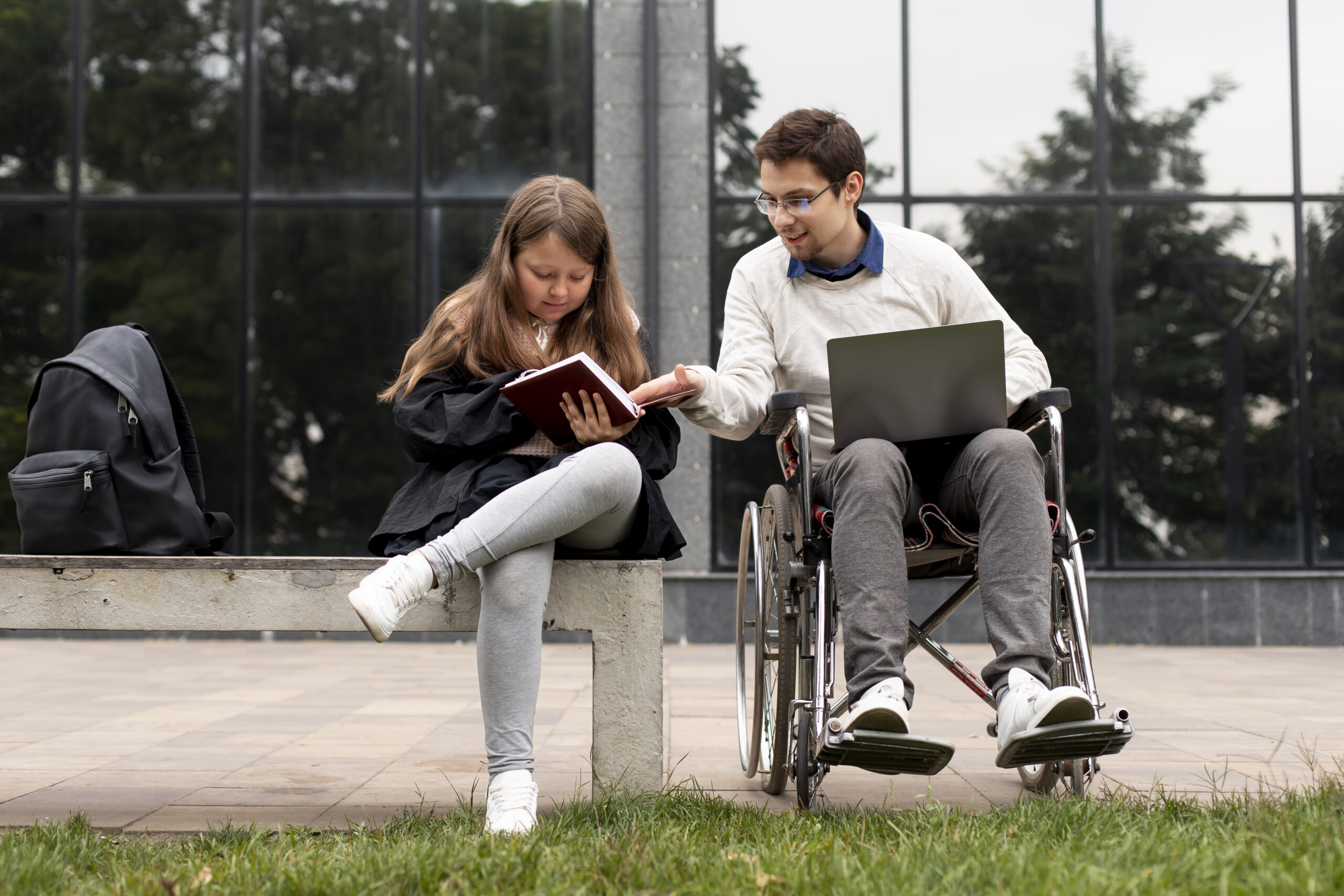Disabled Students’ Allowance (DSA): A Complete Guide for UK Students
Higher education can be both exciting and challenging, and if you have a disability, long-term health condition, or learning difficulty, you may face additional barriers. However, the Disabled Students’ Allowance (DSA) is designed to ensure that all students have access to the resources they need to succeed at university or college.
This guide breaks down everything you need to know about DSA, including who can apply, what support it covers, how much you can get, and how to apply.
What is Disabled Students’ Allowance (DSA)?
The Disabled Students’ Allowance (DSA) is a non-repayable grant available to UK students with a disability, long-term health condition, mental health condition, or specific learning difficulty such as dyslexia or ADHD.
Unlike student loans, DSA does not need to be repaid, making it an essential source of financial support for eligible students. The allowance covers additional study-related costs that arise due to a student’s condition, ensuring equal access to education.
Who is Eligible for DSA?
You may be eligible for DSA if you meet all the following criteria:
- You have a disability, long-term health condition, mental health condition, or specific learning difficulty (such as dyslexia, dyspraxia, ADHD, autism, or long-term illnesses like diabetes or epilepsy).
- Your condition affects your ability to study and requires additional support.
- You are an undergraduate or postgraduate student studying a higher education course in the UK.
- You are eligible for UK student finance (home students in England, Scotland, Wales, or Northern Ireland).
- Your course lasts at least one year and is at a university, college, or Open University.
Who is NOT eligible?
- International students or EU students without home fee status.
- Students receiving NHS bursaries or social work bursaries (you may receive alternative funding).
- Students who have already received DSA for a previous course unless continuing on a linked degree (e.g., undergraduate to master’s in the same field).
- Students on apprenticeship courses or short-term studies under a year.

What Does DSA Cover?
DSA is tailored to your individual needs and does not provide a fixed amount of funding. Instead, you receive support and resources based on your specific disability and course requirements. The support generally falls into four main categories:
1. Specialist Equipment Allowance
Covers the cost of specialist equipment and software you may need, such as:
- Laptop or desktop computer (if required due to your disability)
- Assistive software (e.g., text-to-speech software, mind-mapping tools)
- Digital voice recorders (for lectures)
- Specialist ergonomic furniture (adjustable chairs, desks)
- Braille display, screen readers, or hearing aids
💡 Note: If you are awarded a laptop, you may need to pay a small contribution (around £200).
2. Non-Medical Helper Allowance
Covers the cost of specialist human support, including:
- Note-takers or scribes for lectures
- Specialist study skills support for students with learning difficulties like dyslexia
- British Sign Language (BSL) interpreters for deaf students
- Mental health mentors for students with mental health conditions
- Library assistants or mobility support for visually impaired or physically disabled students
3. General Allowance
Covers additional study-related costs due to your condition, including:
- Printing and photocopying costs
- Specialist books or study materials
- Internet and study software subscriptions
4. Travel Allowance
Covers additional travel costs that arise due to your disability, such as:
- Taxi fares if public transport is not accessible
- Mileage costs if you need to drive due to mobility issues
- Specialist transport services for wheelchair users
💡 Important: DSA does not cover standard travel costs (e.g., train tickets for regular students) – only extra expenses due to your disability.
How Much DSA Can You Get?
The amount you receive depends on your individual needs and the country where you study. Below are the maximum amounts for the 2024/25 academic year:
| Nation | Specialist Equipment | Non-Medical Helper | General Allowance | Travel Costs |
| England | Up to £5,684 | Up to £26,948 | Up to £1,948 | Based on need |
| Scotland | Up to £5,160 | Up to £20,520 | Up to £1,725 | Based on need |
| Wales | Up to £5,657 | Up to £22,472 | Up to £1,899 | Based on need |
| Northern Ireland | Up to £5,266 | Up to £20,938 | Up to £1,523 | Based on need |
💡 These are maximum amounts. Most students receive only what is required based on their needs assessment.
How to Apply for DSA?
Applying for Disabled Students’ Allowance (DSA) can feel overwhelming, but with GobblexEdu, you don’t have to worry about the process. We handle everything for you—from filling out the application to booking your Needs Assessment. All you need to do is provide us with the required documents, and we’ll take care of the rest!
Step 1: Register with GobblexEdu
Visit GobblexEdu.co.uk and sign up for our DSA application assistance service. You’ll get a dedicated advisor who will guide you through the process and ensure everything is done correctly.
Step 2: Submit Your Documentation
To apply for DSA, you need to provide evidence of your condition. Simply upload the following documents to our secure platform:
- Medical evidence (doctor’s letter or specialist report for health conditions)
- Educational psychologist report (for learning difficulties like dyslexia or ADHD)
- Any previous support documents (e.g., EHCP, school disability support reports)
If you’re unsure about the documents you need, don’t worry! Our team will review everything and advise you on what’s required.
Step 3: We Handle Your DSA Application
Once we have your documents, GobblexEdu will complete and submit your DSA application on your behalf. We ensure all forms are filled out correctly, reducing the chances of delays or rejections.
Step 4: We Arrange Your Needs Assessment
After your application is processed, you’ll need to attend a Needs Assessment—but don’t worry, we book this for you!
📅 What happens at the Needs Assessment?
- You’ll meet a specialist who will assess your study needs.
- They’ll recommend equipment, software, and support tailored to your condition.
- It’s not a test, just a friendly discussion to ensure you get the right help.
Step 5: Receive Your DSA Entitlement & Set Up Support
Once your Needs Assessment is complete, you’ll receive a DSA entitlement letter detailing the support you’ve been awarded. GobblexEdu will help you order equipment, arrange study support, and ensure everything is set up properly.
Why Apply with GobblexEdu?
- Hassle-Free Process – We handle everything for you.
- Faster Approvals – Our experts ensure your application is error-free.
- Personalized Support – A dedicated advisor will guide you at every step.
💡 Don’t let paperwork hold you back! Apply for DSA through GobblexEdu today and focus on what really matters—your education.
📩 Get started now at GobblexEdu.co.uk!
Frequently Asked Questions (FAQs)
Can I get DSA if I study part-time?
Yes! As long as your course is at least 25% of a full-time equivalent course, you can apply.
Do I need to reapply for DSA each year?
No, DSA continues automatically unless your condition or course changes.
Can I get DSA if I’m doing a postgraduate degree?
Yes! DSA is available for Master’s and PhD students, but it won’t cover tuition fees.
Final Thoughts
Disabled Students’ Allowance (DSA) ensures that every student has equal access to education by covering the additional costs of studying with a disability. Since DSA is non-repayable, make sure to apply early and get the support you need to thrive in your studies.
Need more help? Reach Out and Start Your Application Process Now!

